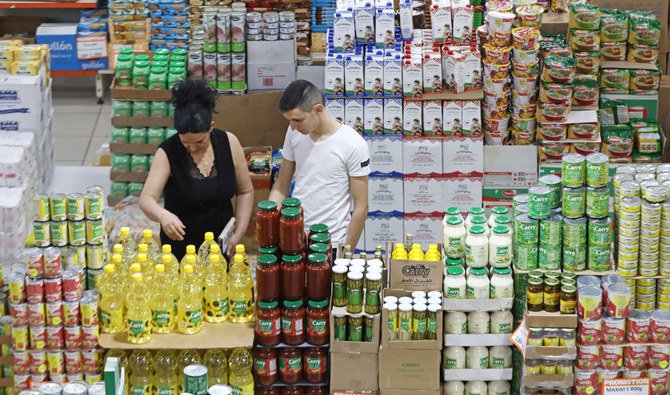
- ARAB NEWS
- 09 Jul 2025

AFP, Beirut
After decades of hard work, self-made Lebanese chocolatier Roger Zakhour thought he would finally be able to pass a successful business to his daughter. But then the economic
crisis hit. Instead of reaping profits this Christmas, he and his 29-year-old daughter are marking down their handmade ice-cream logs. “If it continues like this, in a few months I’ll be bankrupt,” the 61-year-old said.
In protest-hit Lebanon, a free-falling economy, price hikes and a severe dollar liquidity crunch have left local businesses struggling to stave off collapse.
Zakhour started making chocolates and then ice cream in the 1990s, refining his recipes until he became a go-to for five-star hotels and well-off Lebanese. But as the economy worsened over the autumn, high-end hotels drastically reduced their orders and walk-in customers became rare.
Banks have restricted access to dollars since the end of the summer, sending prices soaring as importers struggle to secure enough hard currency to buy supplies.
In pursuit of high-quality products, Zakhour imports his ingredients, paying in euros or dollars. But with withdrawals restricted and no transfers abroad, that is no longer viable. “Now when something runs out, that’s it,” he said.
Unprecedented protests have swept Lebanon since Oct. 17, with people from all backgrounds demanding an overhaul of a political class they deem corrupt. The government stepped down on Oct. 29, but endless political deadlock has delayed a new one being formed to tackle the urgent need for economic reforms.
Many Lebanese have been forced to close shop, and a large number of employees have been fired or seen their salaries slashed by half, even as the cost of living increases.
Watching all this unfold, 31-year-old nursery school teacher Lea Hedary Kreidi and her family racked their brains to see how they could help. They launched a group on Facebook called “Made in Lebanon The Lebanese Products Group” to encourage Lebanese to buy locally produced goods.
In just two months, they amassed more than 32,000 members, who post ads for locally or homemade goods, or ask for local alternatives to imported products.
“We’re used to going shopping and buying what our mothers used to buy. We grab what’s in front of us without checking if it’s made in Lebanon or not,” she said.
But there are locally made options for numerous products, including detergent, shampoo, nappies, peanut butter, ketchup and children’s building blocks.
But some cash-strapped consumers say buying local is not their chief concern. In a Beirut supermarket, 35-year-old Mariam Rabbah clutched a nearly empty basket wondering what to buy with her diminished salary. “Now what we care about is if something is cheap and good quality — not whether it’s imported or Lebanese.”